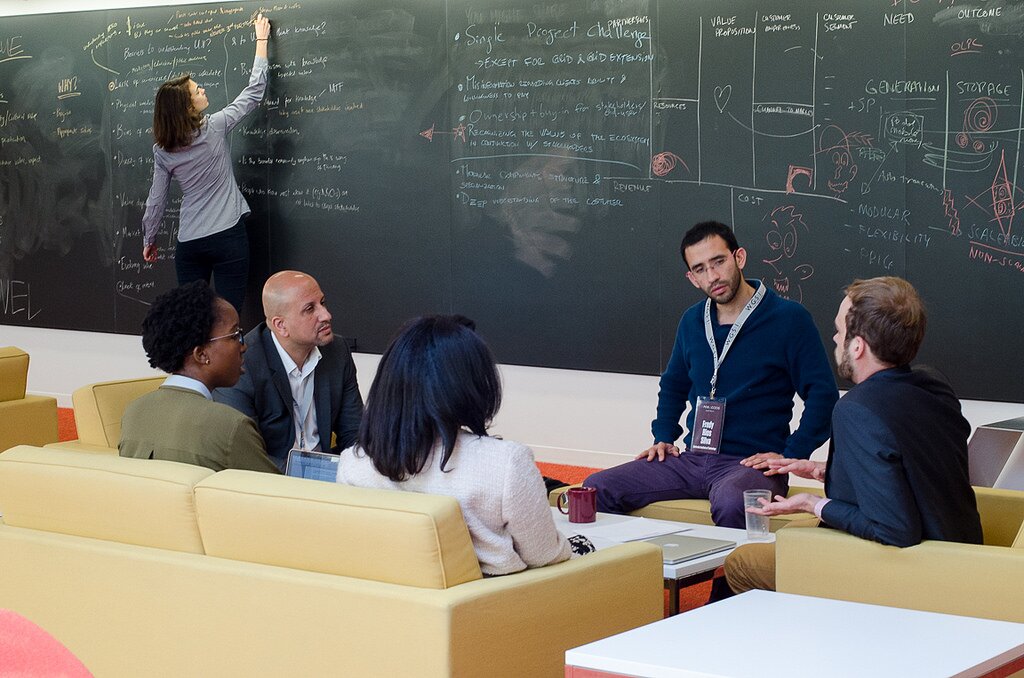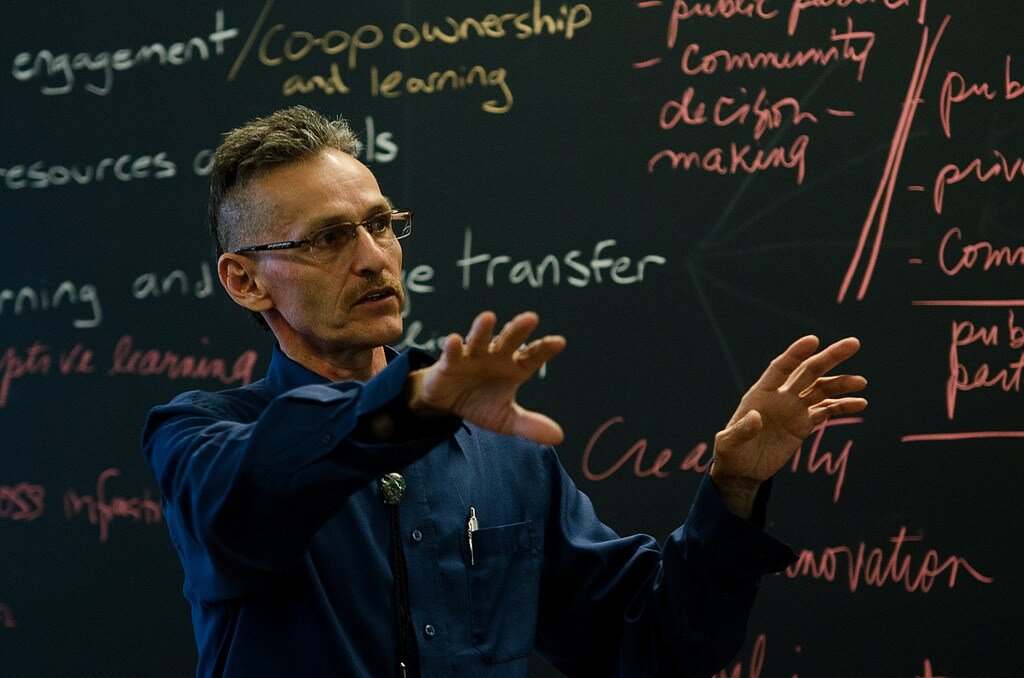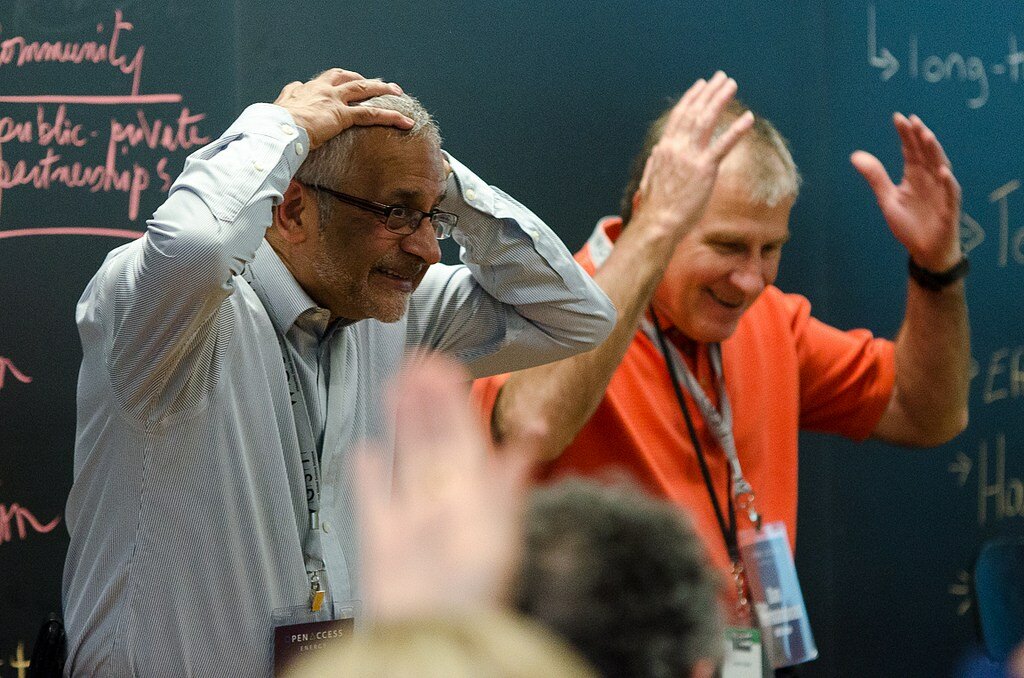Clean energy is collaborative
The OpenAccess Energy Summit brought together a diverse global group to tackle energy access solutions. The consensus? From energy leaders to community leaders, we all need to collaborate.

Brimming with anticipation and the potential for a significant turning point, the OpenAccess Energy Summit in Waterloo felt a lot like summer camp. Only it was hosted by the Waterloo Global Science Initiative, a non-profit partnership between Perimeter Institute for Theoretical Physics and the University of Waterloo – instead of bubbly, ballcap-wearing teenagers. And it was held at the Perimeter Institute (where one can occasionally spot Stephen Hawking) instead of a forest (where one can occasionally spot a hawk).
Instead of arriving in a car captained by exhilarated parents, participants came from Toronto Pearson International Airport to Waterloo in taxi vans, filling them with renewable energy stories from the field (and banter re the American presidential race). Rather than (or perhaps in addition to?) pinning all their hopes on finding a freckled face to kiss under stars on a lakeshore, they aspired to “develop an actionable framework for addressing electricity provision for energy isolated communities.”
While many kids ride home from camp dreaming of the kiss that never happened, folks at OpenAccess nailed their goal. With the enthusiasm of a puberty-stricken 12-year-old, this group of 40 or so researchers, engineers, activists, financiers and entrepreneurs tackled the challenge of energy access in all its nuanced complexity. And after four days of intense working groups and facilitated dialogue (What’s new here? What’s doable this year?), this diverse global cohort emerged with something synthesized and succinct: a communiqué with eight strategy recommendations penned by journalist Michael Brooks.
Motivated by the “emerging technological, social and business innovations” that can enable “more than 2 billion people to gain access to energy resources that will radically transform their well-being through improvements in education, business, agriculture, healthcare, [etc.]” this group aims to realize Sustainable Development Goal 7.
Providing energy to the 2 billion people who are living without reliable access was framed as both a moral imperative and a huge economic opportunity. But to get to a place where we can all use reading lamps and breathe clean air, we need to collaborate – as per the whole point of the summit and one of the recommendations to come out of it around networking energy-poor communities:

"Energy-poor communities have expressed a strong desire to establish connections with each other that will allow them to take active ownership of their energy future," reads the communiqué's fifth recommendation. "A network linking energy-poor communities locally, nationally and globally can connect community leaders, enhancing their access to ideas, programmes, researchers and technologies. Through the collaboration of a growing number of communities in the network, they can leverage greater financial, regulatory and technology resources. The result is a leadership role for these communities where they can develop their energy resources in a way that aligns with their cultural values, for which there appears to be a clear and urgent desire, especially in Indigenous communities."
This strategy was developed by a group of (mostly) Canadians who chose to spend their summit time looking at how best to engage Indigenous communities in energy conversations.
Summit participant Judith Sayers, lawyer, strategic advisor and former Chief of the Hupacasath First Nation on the west coast of Vancouver Island, emphasized the importance of empowering Indigenous communities.
“If we’re going to build a project, let’s do it from the ground up. Let’s educate the community on the types of energy that’s available – what’s possible – and have the community buy in from the very beginning and have them involved in the solution for their lives.”
Summit participant Chris Henderson has been working on sustainable development for almost 30 years. He brought his extensive experience advising Aboriginal communities on clean energy solutions to the table.
“This was a path that was needed – we would not be able to move with a lot of clean energy without a lot of Indigenous participation.”

Henderson’s working to build a knowledge-sharing network linking clean energy mentors with keen community leaders across the country. At the summit, he chatted with Søren Hermanson, director of Samsø Energy Academy (in Denmark), about linking their similar networks. This alliance, one of many to bubble up at the summit, speaks to the promise of this summit’s future impact.
“I find a lot of times people get caught with things that are not scalable,” Henderson said. “They don’t look at how … you can have broad impact. And that’s the challenge with this: where are those trigger points?”
In the coming months, WGSI folks will look for trigger points as they evolve their eight-point action plan from communiqué to full-on blueprint – due out in the fall. In the meantime, learn more about the ideas and the people at the heart of OpenAccess from our journalism fellows – their stories are coming soon to Power Struggle.
